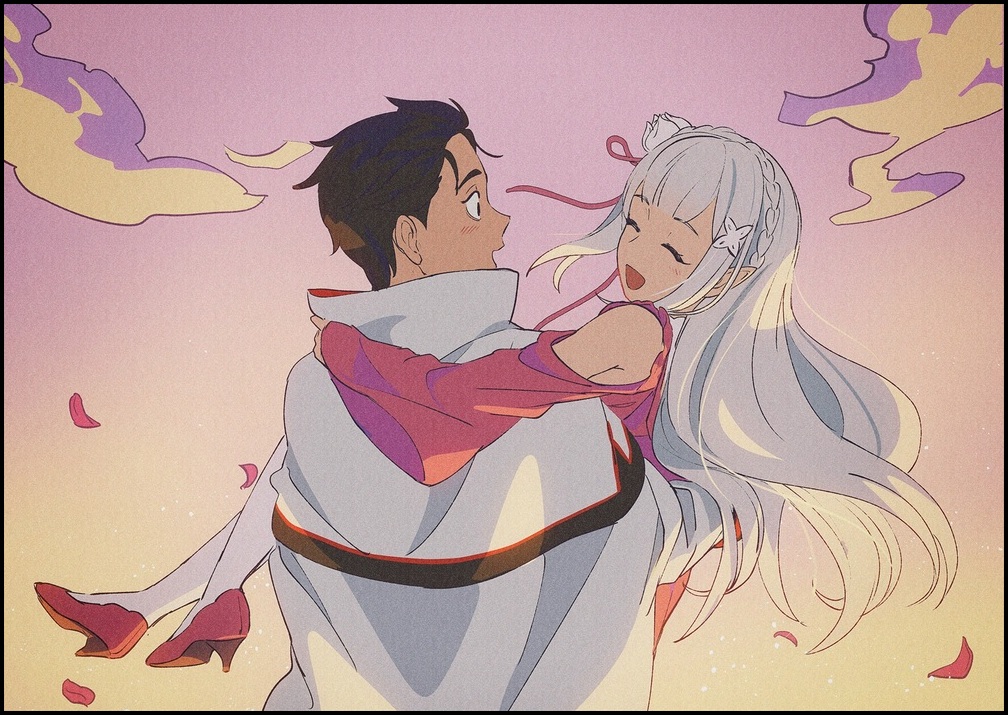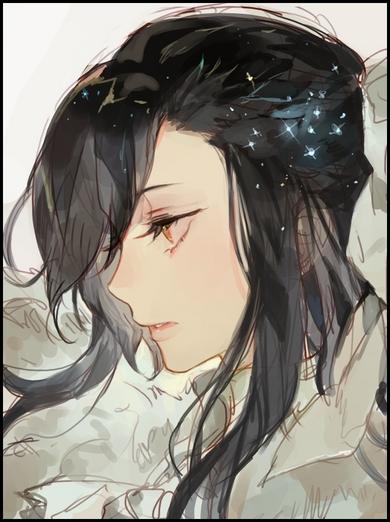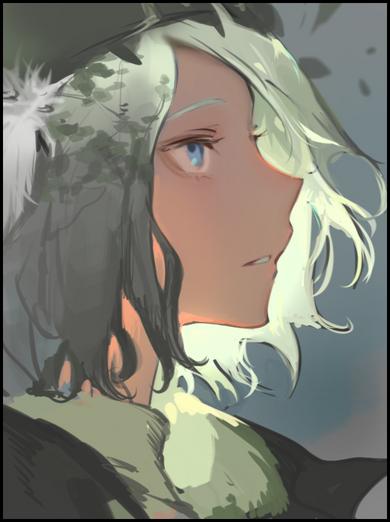
This 'anime' stuff is pretty cool, sometimes!
My Personal Ranking System:
- 10 - My absolute favourites, or shows that resonate within my soul telling me "this checks the box in every area possible"... May as well have been made for me specifically. Unsurprisingly, they may not feel the same way to you.
- 9 - Fantastic experiences that you will remember. Only a few faults, yet worth delving into even with those minor issues. You were almost there! Likely just absolutely phenomenal creations.
- 8 - We have got some "make your brain feel good" material right here. Likely recognizes it's faults and works around them the best it can. Hits the spot most of the time.
- 7 - The Good zone. Things are handling really well in here! Might be missing that extra juicy something which prevented it from captivating me more.
- 6 - It managed to slightly stand out from the rest of the crowd in some way. Guilty pleasure potentially.
- 5 - The average, the middle ground, the run-of-the-mill experience. Most of these shows are probably ones that have value but simply do not appeal to me. You'd think most things would go in here, but you'd be wrong...
- 4 - Something happened that didn't sit well with me. The production may be poor enough that it takes away from the plot, or vice versa. Could just not have offered up anything unique. May still be worth a try.
- 3 - The Bad zone. Need some wiggle room below the average. Accumulation of production failures and plot predicaments alike. May very well have irritated me while viewing.
- 2 - Everything has some value to it, regardless of how awful it may be to look at or listen to. Probably strongly dislike these, however.
- 1 - Not worth any thought or time. I feel horrible for the production staff and animators for having to produce this at all. A feeling of loss is experienced within when slightly glancing at these. Probably shouldn't exist.
  Reference:
Scoring
Reference:
Scoring - High and Low # are similar to 'almost' being whatever number they are closest to.
Bias - Whenever opinions are involved, things become subjective, and that is the same for the situation here. While I do take into account the production elements of a show (sound design, artwork, animation, you name it) my emotions and feelings towards one impact my ratings too.
Ratings overall really do not matter, but if you are going to be watching anime, might as well participate somewhat.
|









































































All Comments (22) Comments
Several years ago we use to do a Review Event in the club where a lot of reviewers would share their seasonal work together - https://myanimelist.net/forum/?topicid=1603444
There was a club that was created that geared more towards reviews so we discontinued the event but that club sadly died out. So we are considering bringing back the Review Event for the Winter 2022 season but that also requires there to be reviewers that want to participate. Our club also covers a lot of other aspects of the currently airing season every year as well which you can see here - https://myanimelist.net/forum/?topicid=1574211
So it might be worthwhile to consider joining our club. The way the submission process works is pretty simple, you post your reviews in the review hub as Spirit is doing right now, please do provide links to your reviews though so KAN knows its on MAL - https://myanimelist.net/forum/?topicid=2001365
Then make sure that you check the episode count is marked completed before you do so.
If you're looking to post reviews, post them after the final episode discussion goes live.
Anyways, thanks!
Thx for the request.
Cheers!
Hope this helps to understand the change a bit better now.
I think Babylon gets as much hate as it does because it baited and switched a lot of people. This show started out feeling like it was going to be the second coming of Monster. A dark mystery thriller in which the villain psychologically tortures and plays with the protagonist until the climax. However, that is not the case as this was always going to be a battle of ideologies (much like the author's other work -- the name escapes me but it got similar hate in 2017).
The main story is irrelevant. It is a plot device to force you to consider a question: What is justice/good? And the series spells this out for the viewers at multiple points.
Zen is a normal person that most people can identify with. He starts out the series as very close-minded with strong views on what it means to be just -- like most people (murder is bad, suicide is bad, torture is bad). The series spells out for that Zen is supposed to represent most of society. He devotes hours on end to fighting evil. And like most people, Zen is relatively sheltered in that he is surrounded by a society that agrees with his views and is unaware of the detrimental affects that such views have on others (his devotion to his job and catching Ai ultimately comes at the expense of his family).
Conversely, as a character in this story, Ai Magase makes no sense. She is not normal. She can make herself look like anyone and can cause people to commit suicide just by whispering as she passes by. What she considers good, most of society would condemn as evil.
But as a symbol for something else -- something evil, even forbidden -- she could not be more perfect. She is so utterly charming that she makes acts of unspeakable evil seem beautiful and sexy (I mean she dismembered a woman and rather than be shocked, I'm betting most people were excited. To pull that off both in animation and writing is incredible.). And she is incredibly charismatic that she steals every scene she is in. The author gives you just enough of her -- just a small taste in the right moments -- so she can steal every scene she is and makes you agonize in anticipation of the next time she will appear. You just want more. She is the forbidden fruit. (she is everywhere – great suspense for the viewer)
Throughout the series, Ai constantly challenges and plays with Zen in regard to his definition of justice. It begins in the interview room with Ai challenging Zen on his views that any act is objectively good or evil by pointing out exceptions where a bad act may otherwise be good (self-defense killing, suicide to save the life of another) etc . . . Zen is relatively unphased.
Ai then proceeds to flaunt her power at Zen by taking several of the people that he cares about from him. First, she causes his friend to kill himself. Then, she causes Zen's fellow interviewer to kill himself. Then innocent bystanders. Then half the police force. All throughout, Zen’s remains rigid in that she needs to be arrested and brought to justice.
Until, it happens. Ai finally breaks Zen by brutally murdering his assistant while Zen is completely powerless to watch (an important concept). Strangely enough, Ai tells Zen that she knows he will consider her opinion/question about what is truly good or evil.
It’s after this point that Zen – the character who is supposed to represent the concept of good in this series – begins to shift his stance. His motives change from capturing Ai and convicting her for murder to killing Ai because she is a threat to his concept of good (another important theme). Indeed, she is changing the world’s stance on what is good in regards to the suicide law. She is not just a threat to him, but to his entire society and way of life. Ironically enough, Zen’s stance on the meaning of justice changes from rigid black or white to defining justice as “continuously considering what the meaning of justice is."
The story shifts focus to the President of the United States – a person considered to be the most powerful individual on the planet as the leader of “free world.” The President is portrayed as an extremely learned individual that considers all views objectively. Again, the series spells this out for you by having him consider every source and ask for the opinions of multiple people. He is a relatively blank canvas. His morals are not as rigid as those of Zen, but he still has clear demarcations about what good and evil are, but they are much looser than those of someone like Zen. However, this also means that the President is also ambivalent as he can be swayed if the facts lead him to that conclusion.
The President makes two critical observations. The first observation is that he does not have to decide whether the suicide law is good – as the suicide summit can decide that (important theme). The second observation is that he concludes good simply means “to continue.” Notably, Zen reached the same conclusion. Their collective concept of good is “to continue.”
Ai ultimately tempts the President into committing suicide. As previously shown in the series, the President is a dead man walking as nothing will be able to stop him from committing suicide. Zen and the President are forced to make a choice that will have a tremendous impact on the society in which they live and themselves.
If Zen does not murder the President, then the suicide law will spread worldwide via a Presidential endorsement. Ai Magase will win.
If Zen murders the President, he will prevent the suicide law from overthrowing his concept of good in society. But to do so means he will commit act of evil. However, Ai still wins.
Zen and the President ultimately choose the latter to preserve their concept of what is good as the dominant force in society. And then, Ai appears and teases that Zen by saying “You’re sooooooooooo bad.” Having already given into the temptation to perform an act of evil for a reason he believed was good, Zen turns to the gun to Ai, but cannot fire. Likewise, Ai points her fingers in the shape of a gun at Zen. At this point, Ai has already won. She is talking to Zen meaning her power is in full effect. She had successfully tempted Zen into committing evil.
Ai asks Zen one last time, what is good and Zen responds by saying “To continue.” Notably Ai nods as if she is relieved he came to the correct answer. Ai then asks him what is evil? And Zen responds by saying To End.
Ai then lamentedly says to Zen “I’m sorry that’s” before we hear a shot go off. My guess without reading the LN is that Zen turned the gun on himself and killed him. Ai's apology suggests this.
The show makes clear, he who is in power often dictates what most of society deems good/evil and that is the true answer. The most powerful person in the series was Ai Magase. Notably ever act she made dictated society in this show
That’s what I believe Babylon was trying to illustrate with this story. It could have benefitted from being 24 episodes in my opinion, but the story accomplished what it set out to do if you were paying attention. Likewise, it’s rare for me to love one character from a series so much that they get into my top 5 of all time, but Ai Magase did it. She may be the greatest antagonist I have seen Johan Liebert in Monster. There are no flaws in her character or how she was used in this story. Truly marvelous.
Babylon's pacing issues are really the only thing stopping me from giving it a perfect score. I am sure if I just read the LN, I would give them a perfect score